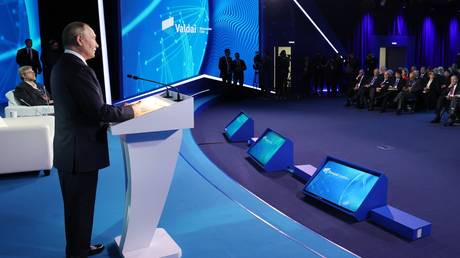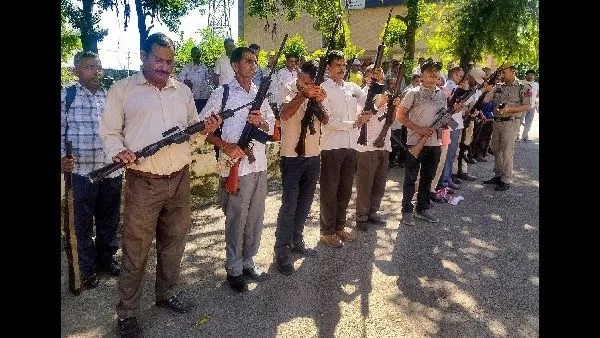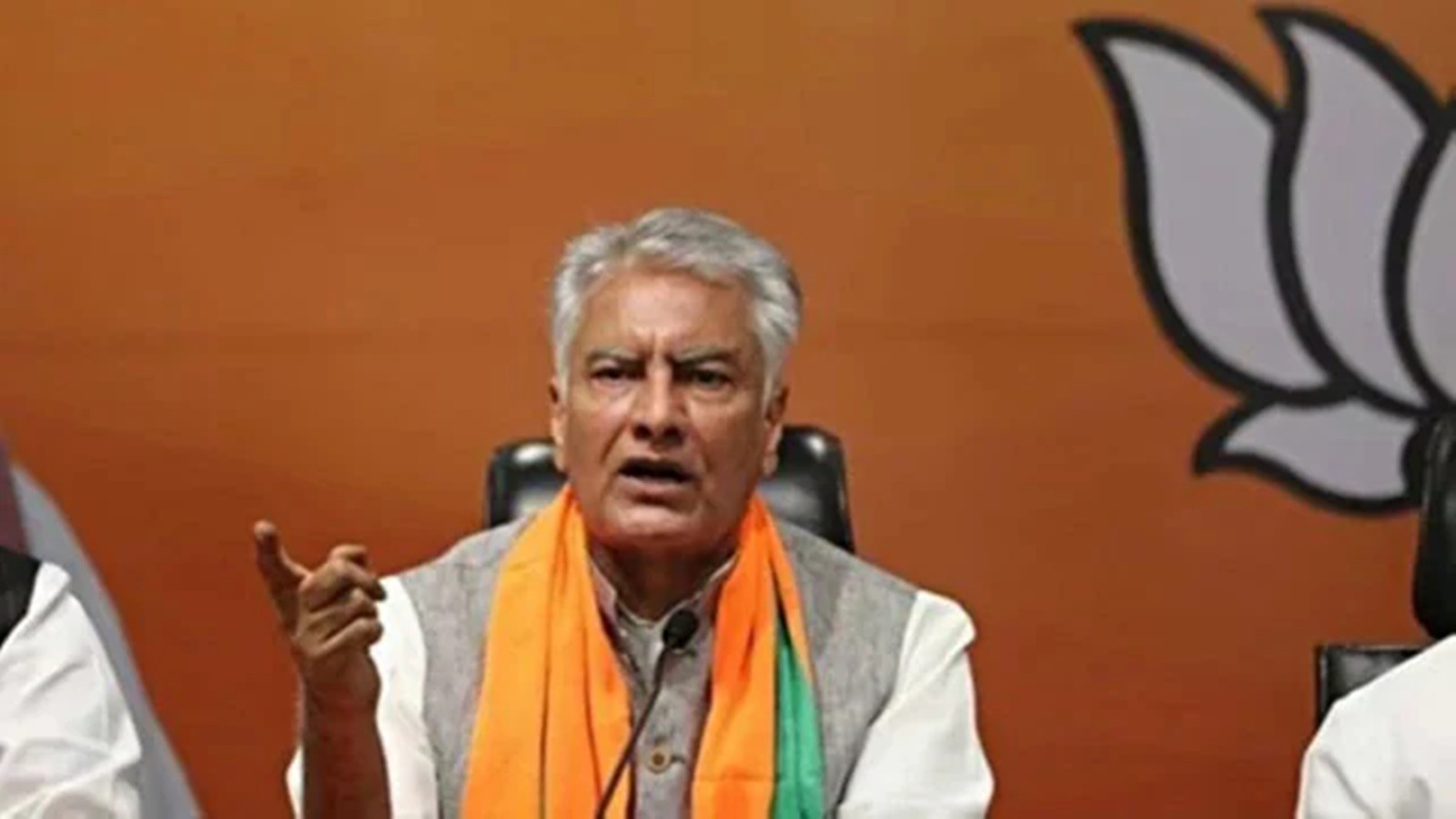In terms of electric buses, the national capital Delhi has now become number one in the entire country. Delhi government on Thursday launched 500 more new electric buses on the roads of Delhi. CM Arvind Kejriwal, along with LG VK Saxena, flagged off these buses from the IP depot. After the inclusion of these 500 buses in the fleet, the number of electric buses in Delhi has now increased to 1300. Whereas a total of 7232 buses including CNG buses are running on the roads. All these electric buses will run on batteries and there will be no pollution.
These buses are fully air-conditioned, equipped with CCTV, panic button and GPS. With the arrival of these buses, the journey of Delhiites will become easier. Operation of e-buses will also reduce carbon dioxide emissions significantly. This will reduce air pollution inside Delhi and the environment will be clean.
Delhi became number one in the country- Kejriwal
CM Arvind Kejriwal expressed happiness over the inclusion of 500 new electric buses in the fleet of Delhi Transport Corporation. He said that today 500 more electric buses have been included in the fleet of the Transport Department. For this I congratulate the people of Delhi. Now Delhi has 1300 electric buses and Delhi has become number one in the country in terms of electric buses. Our efforts to strengthen Delhi’s transport system will continue.
The inauguration program of electric buses at Indraprastha depot on Thursday morning started with the national anthem. LG VK Saxena and CM Arvind Kejriwal took stock of the facilities available in the new electric buses and Transport Minister Kailash Gehlot gave information about the modern facilities available in the buses. After this, the buses were flagged off. Transport Commissioner Ashish Kundra and other senior officials were present on this occasion.
Government’s big step against pollution
Transport Minister Kailash Gehlot, while talking to journalists at Delhi Secretariat, said that today is a big and auspicious day for the people of Delhi. He said that the government has taken a step forward in the fight against pollution by putting electric buses on the roads.
Launched 500 new electric buses in Delhi today with the Honorable Lieutenant Governor. Now there are 1300 electric buses in Delhi, which is the highest in the country. Our target is to have a total of 8000 electric buses by 2025. At that time there will be more than 10 thousand buses in Delhi, of which 80% will be electric. pic.twitter.com/xRmYXpSHGj
— Arvind Kejriwal (@ArvindKejriwal) December 14, 2023
Transport Minister Kailash Gehlot, citing different reports, said that a CNG bus produces 800 grams of carbon dioxide when it travels one kilometer. This means that if an electric bus travels one kilometer instead of a CNG bus, then the emission of 800 grams of carbon dioxide is reduced. At the same time, if there had been some other bus in place of the electric bus, it would have added 800 grams of carbon dioxide to the atmosphere. Every bus in Delhi travels at least 200 kilometers daily.
In this way, a bus travels about 70 thousand kilometers in a whole year. If we look at the whole year, the operation of an electric bus reduces the emission of about 56 tonnes of carbon dioxide in a year. There are already 800 electric buses running in Delhi. In the last one and a half year of operation of these 800 e-buses, about 34 thousand tonnes of carbon dioxide has been reduced. In view of pollution, these e-buses will provide a lot of relief. When these e-buses complete their life cycle, they will save 4.67 lakh tonnes of carbon dioxide from being generated annually. Under the leadership of CM Arvind Kejriwal, Delhi government has taken very concrete steps against pollution.
Delhi government’s next target
Transport Minister Kailash Gehlot said that the aim of our government is to convert the entire bus fleet into electric buses by 2025. By the end of 2025, the total number of buses in Delhi will be 10480. It will have 80 percent electric buses. Our target is to increase the number of electric buses to beyond 8 thousand by the end of 2025. When the number of electric buses crosses 8 thousand, Delhi will be among the few cities in the world where the maximum number of electric buses are running. He told that out of 8 thousand e-buses, work order has been issued for 6 thousand e-buses. Now almost every month 50 to 100 e-buses will be added to the fleet.
Transport Minister Kailash Gehlot said that all the depots located in Delhi are being electrified. We have more than 60 bus depots in Delhi. Electrification work is going on on a large scale in all these. These 500 e-buses will also be included in Rohini, 160 in Hasanpur, 130 in Wazirpur, Subhash Place and BBM depot. The area around these depots will benefit greatly.
Excellent transportation model in front of the country and the world
Delhi Government believes that a good transport system of the city is essential for the people living there to have access to education, employment and health opportunities and for the rapid development of the city. According to an estimate, currently about 40 lakh people travel in buses in Delhi and it is believed that by 2025 this figure will increase to 60 lakh. Keeping this in mind, the government is especially promoting electric buses, so that along with providing comfortable travel to the people, air pollution can also be reduced.
34 thousand tons of carbon dioxide reduced due to running of 800 e-buses
On Thursday, 500 electric buses were included in the fleet of the Transport Department. Earlier, 800 electric buses were running inside Delhi. These buses were launched on the road in January 2022. Due to these buses, till now more than 34 thousand tonnes of carbon dioxide has been generated and these buses have covered a distance of more than 42 lakh kilometers. At the same time, after the inclusion of 500 electric buses, there are now 1300 electric buses in Delhi and this number is more than electric buses in any other state of India.
1300 electric buses in Delhi in two years
The first electric bus was included in the fleet of the Transport Department in Delhi on 17 January 2022. After this, two electric buses were included in March 2022. 150 buses were included on 24 May 2022 and 97 buses were included on 24 August 2022. At the same time, this year 2023, 50 buses have been included on 2 January, 100 buses on 1 May, 400 buses on 5 September and 500 electric buses on 14 December. In this way, there have been 1300 electric buses in Delhi in two years.
After flagging off 500 e-buses, there will be 2,841 DIMTS buses and 4,391 DTC buses in Delhi. Also, the total number of buses in Delhi has now reached 7,232. At the same time, by 2025 there will be 10,480 buses in Delhi. Of these, 80 percent i.e. 8,280 buses will be electric. Due to these buses, emissions of 4.67 lakh tonnes of carbon dioxide will be reduced every year in Delhi.
Facilities available in electric buses
-AC low floor for the convenience of disabled people
– Free ticket for women.
– These buses neither smoke nor make noise
– Digital ticketing facility
– Buses equipped with GPS, CCTV and panic button
Electrification of all depots is taking place
More than 60 bus depots are being electrified by the year 2025 to have more than eight thousand electric buses out of 10,480 buses in Delhi. Currently 13 depots are electrified and fully functional. This includes all 12 meter buses at Mundela Kalan, Rohini Sector 37, Rajghat-2, Mayapuri, Rohini Sector-1, Rohini Sector-2, Hasanpur, Wazirpur, BBM, Subhash Place and Nehru Place and Shastri Park and Majlis Park 9. Meters are for buses. Delhi government has made its plans keeping 2025 in mind. More than Rs 1500 crore is being spent on electrification of the depot.




